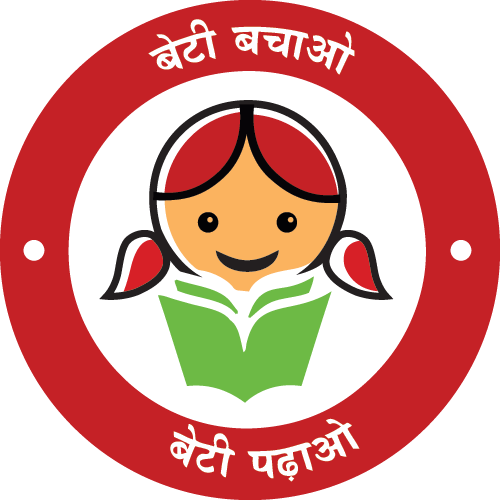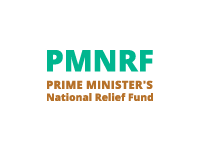Member, Dr. Charu WaliKhanna was Chief Guest at the National Commission for Women National Consultation to review Rajiv Gandhi Scheme for Empowerment of Adolescent Girls – SABLA, implemented by the Ministry of Women and Child Development Govt. of India
Member, Dr. Charu WaliKhanna was Chief Guest at the National Commission for Women National Consultation to review Rajiv Gandhi Scheme for Empowerment of Adolescent Girls – SABLA, implemented by the Ministry of Women and Child Development Government of India at Kolkata on 25.02.2014. The Consultation was held by NCW in Collaboration with Child in Need Institute [CINI].
Member, Dr. Charu WaliKhanna said that the Rajiv Gandhi Scheme for Empowerment of Adolescent Girls: RGSEAG-SABLA, launched in 2010, is one of the pioneering efforts by the Government of India to empower adolescent girls across the country. SABLA aims to improve the nutritional and health status of girls and equip them with life skills and knowledge through the nodal Ministry. In this context, the one-day Consultation has been organized to review the contents of the scheme and their challenges in order to offer recommendations to the Ministry of Women and Child Development, Government of India. Senior members from the State Commissions for Women, State WCD Department and CSOs from 7 states, namely, Chhattisgarh, Bihar, Jharkhand, West Bengal, Uttar Pradesh, Assam and Mizoram attended the Consultation.
The consultation included voices of Girls from rural and urban area of West Bengal, who are beneficiaries of the Scheme. They clearly stated that previously they were not aware of the SABLA Scheme, the reason why they were getting the nutrition component, its utility and the rest of the non-nutrition components were also not explained to them. But after intervention of CINI workers, now they are aware of the SABLA benefits. Dr. Charu Walikhanna interacted with them and asked what they are doing in SABLA, what challenges they are facing, how they interact and negotiate with their families regarding social norms and issues. These girls are tracking adolescent vulnerabilities through social-resource maps.
Below is the status of the Scheme:
- Recently Nutrition Provision is increased from Rs 5/day/Adolescent girls [AG] to Rs.7/day/AG; this is supposed to provide for 600 calories and 18-20 gram of protein. This fund allocation is extremely inadequate. West Bengal has not been able to provide the SNP in SABLA as there is a litigation going on.
- Convergence with the Department of Health has been well implemented in maximum states, like West Bengal, Jharkhand, Bihar, but coordination needs to be improved with education, youth affairs, and labour and employment sectors.
- Convergence with the Department of Health has been well implemented in maximum states, like West Bengal, Jharkhand, Bihar, but coordination needs to be improved with education, youth affairs, and labour and employment sectors.
- Not all states have effectively involved NGOs; where they have, such as in West Bengal, Chhattisgarh, Odisha, Karnataka, Rajasthan, the scheme components are working well.
- An innovative and interactive new module is prepared in West Bengal for the Sakhi and Sahelis. These are easier for them to understand and conceive which in turn have enabled them to provide training in a fun filled way and is found to be very effective.
- In UP one major challenge is that the adolescents are not very aware of the SABLA scheme and its different components. Proper counseling support and Right Based intervention is missing in many places. Some religious laws and practices are prohibiting marriage registrations. Adolescent Girls and women are being sexually exploited also in many cases.
- In maximum cases, girls consume their IFA tablets at home, while only one-fourth took it at the AWC. Vocational training component need to be strengthened in each and every state. In Assam the counselling for vocational training was reported to be low, around four percent.
- Space and size of the Anganwadi Centres is a major challenge in maximum states, especially in the urban area, like Kolkata, Patna, etc.
- Tribal and other marginalized communities are getting neglected in some areas. Adolescent Girls in those communities are not getting the IFA or nutrition supplements in many places.
- Fund allocated for the Nutrition Component is not at par with the market rates and it is becoming impossible to provide 600 calories and 8-20 gms of protein in Rs 7/ day/ adolescent girl. This has to be increased to meet this requirement.
- Fund releasing cycles are irregular; this is causing shortage of fund in the first and second quarters specially.
- Lack of counseling support for the girls. To bring back the out of school girls counseling is required in their family levels too.
- SABLA scheme do not have any special emphasis on addressing problems faced by the specially-able adolescent girls. Disability cannot be generalized; it is not a homogeneous group. This is very unique.
- SABLA Kit is supplied but no orientation is done, as a result the workers do not know the proper usage of them and those are not being utilized everywhere.
- Girls in tribal communities and some minority groups are not reached.
- AWW are overloaded with work. Their working hours are not sufficient to provide for the additional pressure of SABLA scheme. So in many centers SABLA work is getting neglected.
- Increase fund allocation for the Nutrition Component. Suggested Rs 25 /day/adolescent girls.
- Regularize fund releasing cycles. Timely release of fund must be ensured
- Emphasis should be given on Sustainable Community-based Approaches, involvement of related NGOs and Civil Social Organizations (CSOs).
- Promote sectoral/thematic network of NGOs
- Schematically SABLA should be developed to address the problems faced by the girls who are specially-able. Teaching materials should be specially designed, AWCs should be barrier free and accessible to all.
- Encourage Community Based Organizations and Self Help groups in nutritional promotion
- Sensitize adolescent boys on gender issues, women exploitation, human rights and involve them in vigilance groups to protect social inequalities. Involve more girls to form groups and identify their community problems. Increase budget allocation under the scheme for awareness and prevention works.
- More Inter-departmental Coordination is required. Provide Additional Human Resource at DPO/CDPO level for effective implementation, Coordination, Documentation & Reporting. SABLA needs a proper structure for implementation
- Research Study to be assigned to find workload of AWW. After assessment if required this needs to be restructured for effective functioning of the SABLA scheme.
- Improve the Centre – State Relation for better implementation of the scheme.
- Right Now SABLA is Nobody’s Baby! It needs ownership by the service providers
- There should be strong linkage with other schemes for adolescent girls, like, Kanyashree [West Bengal], Rashtriya Kishore Swasthya Karyakram, Sarva Shiksha Abhiyaan and others.
The challenges in implementation of the scheme:
The following recommendations emerged from the consultation:
Presentation was given by: Mr. Anil Kumar Sukumaran, Ms. Bharti, Ms. Abha Kumar, Ms. Shampa Sengupta, Ms. Sheeba Aslam Fehmi, Ms.Neelam Chaturvedi, Dr. Indrani Bhattacharyya, Ms Aloka Mitra among others.
All participants unanimously felt recommended fund allocation for the Nutrition Component to be increased to Rs 25/day/adolescent girl.




















